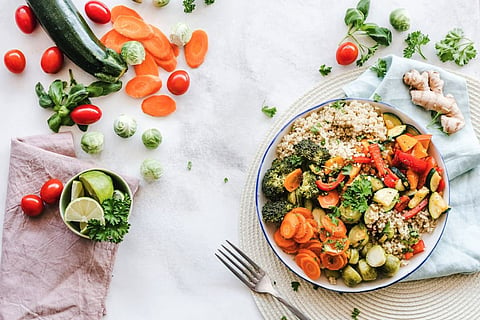
- LIFESTYLE
- FASHION
- FOOD
- ENTERTAINMENT
- EVENTS
- CULTURE
- VIDEOS
- WEB STORIES
- GALLERIES
- GADGETS
- CAR & BIKE
- SOCIETY
- TRAVEL
- NORTH EAST
- INDULGE CONNECT

In our last article, we discussed gut and this week we will learn more on how to take care of the gut. Our gut is home to trillions of bacteria, or the gut microbiome, that play a crucial role in keeping us healthy by managing digestion, boosting the immune system, balancing mood, etc. What’s interesting is that every person’s microbiome is unique, just like a fingerprint. When the balance of bacteria is disrupted, it can lead to various health issues like bloating, constipation, inflammation and even mental health problems like anxiety or depression. Let’s explore what can harm your gut microbiome and what changes you can make to improve it.
Antibiotics are essential when you’re fighting bacterial infections, but they don’t discriminate and kill both harmful as well as beneficial bacteria in your gut. If you don’t replenish your good bacteria after taking antibiotics, your gut can remain imbalanced, leading to digestive problems.
Stress doesn’t just affect your mind; it can wreak havoc on your gut too. When you’re stressed, your body releases hormones like cortisol, which can feed harmful bacteria and increase cravings for sugary foods. Excessive sugar intake, in turn, disrupts gut health.
Many people don’t understand that taking medications, especially over-the-counter drugs, without proper guidance can damage your gut lining and kill off good bacteria. Always consult a healthcare professional before taking medication to ensure it won’t negatively affect your gut.
Foods that are high in sugar, unhealthy fats and chemicals can harm the bacteria in your gut. These foods encourage the growth of harmful bacteria and reduce the diversity of your gut microbiome. Over time, this can lead to issues like inflammation, poor digestion and even chronic diseases.
The good news is that you can make simple lifestyle changes to support and improve your gut health as well as the microbiome. Let’s look at a few tips:
The more colourful your plate, the better for your gut. A variety of fruits and vegetablesprovide essential nutrients and fibre that help good bacteria thrive. For example, leafy greens, carrots, bell peppers and berries are rich in vitamins and antioxidants that promote a healthy gut microbiome.
Consuming too much sugar damages the lining of your gut, making it easier for harmful bacteria to take over. Over time, this can lead to gut-related problems and even autoimmune conditions, where the body starts attacking its own cells. Try replacing sugary snacks with healthier options like nuts, seeds or fresh fruit in moderation. artificial sweeteners, often found in "aerated drinks" or "low-calorie" foods, can impair your gut health.
While fruits are healthy, too much fructose (the natural sugar found in fruit) can lead to inflammation. Eating fruit in moderation is key, and sticking to one or a maximum of two servings of fruit in a day is fine, but start with 3-4 soaked nuts first.
Extreme diets that eliminate entire food groups, such as grains or carbohydrates, can harm your gut health. Whole grains provide essential fiber that feeds good bacteria. aim for a balanced meal that includes a variety of nutrients for more than just the gut for the entire body.
Foods like green bananas, cold potatoes and rice kanji are rich in resistant starch, which is a type of fibre that feeds good gut bacteria. Resistant starch acts like food for your gut bacteria, helping them grow and thrive plus improving overall gut-related symptoms.
Whole non-vegetarian foods provide protein for healing and repairs; eating too much red meat can cause inflammation in your gut. Focus more on lean cuts off chicken and fish plus club it with vegetables to give your gut a break from heavy, hard-to-digest meats.